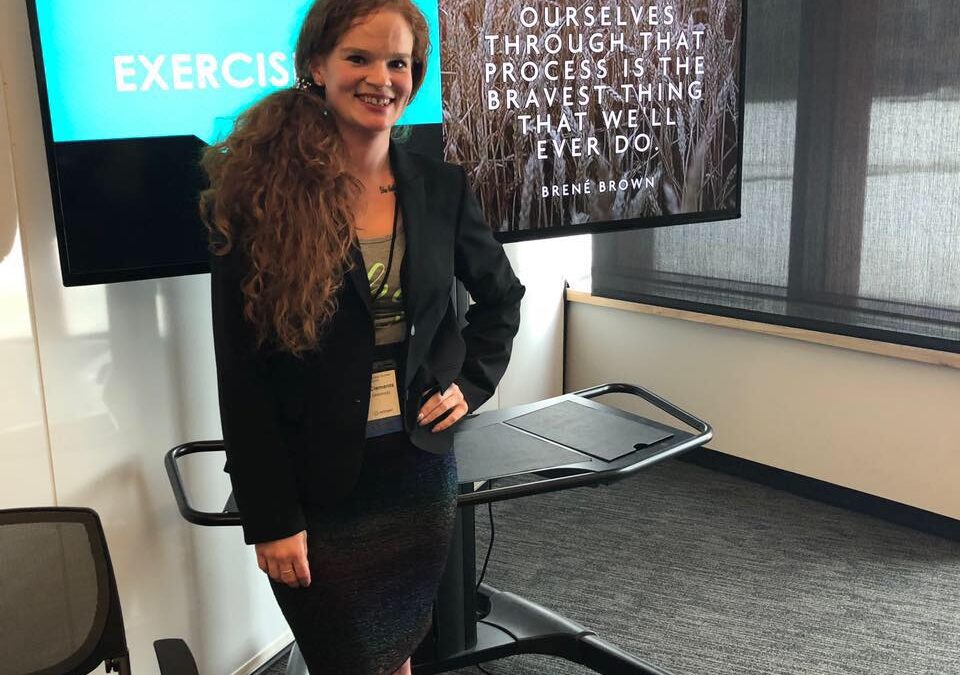Hi, my name is Ali, and I am a woman who used to drink a lot. Then one day (January 24th, 2016), with some (intense) help from family and other loved ones, I decided to stop. And — go figure — once I stopped, life got tremendously better.
I would like to start off by saying that when I write I tend to write about what I know best, and what I know best is me, and my experiences. So, if I say anything that you might not agree with please know that this is my story and something that I know best. Look at my story as you might a dessert buffet, take the cannoli and leave the Jell-O. Try something and if you don’t like it, don’t feel obligated to finish it.
If I’m honest, which I always try to be, I’ve always felt as though I was a bit of an “outsider” in the collegiate recovery community. When I learned that collegiate recovery existed it was while watching The Anonymous People at treatment. I loved the idea of a community that allowed for college kids to get (or stay) sober or find recovery. At 29 years old, though, I thought I would always be too old for a community like that.
In my early recovery (the first two years), I struggled with the idea of going back to college. As a Marine Corps Veteran, I had GI Bill benefits I could utilize (and with a decent housing stipend it made sense), but I couldn’t shake the feeling that maybe “college just wasn’t for me and that’s okay” (and it is — it’s really okay). I had a decent paying job and felt pretty confident and stable in said job, then one day that job just didn’t work out. I was crushed and had to figure out a somewhat stable plan fairly quickly. I moved back to Minnesota near my family and decided to go back to school. Little did I know that decision would be life changing.
SPOILER alert: I would go back to college. And not only did I go back — I excelled in ways I never thought I could. I graduated in December of 2019, with my Bachelor’s of Science in Marketing and was admitted to an MBA program shortly after.
My collegiate recovery experience started out pretty simple. I was a college student in recovery and I was pretty outspoken about it: I would do projects based around awareness campaigns or retail ideas involving recovery, I did a business practicum (internship) at a treatment center for women and kids, and I found ways to incorporate my recovery and education (which helped enhance both experiences). Being at a university that didn’t have a collegiate recovery program I had to find something that worked for me.
In September of 2018, I found out about the Inaugural Collegiate Recovery Leadership Academy put on by SAFE Project and ARHE. I remember applying because, “hey, the worst they could do is say no” (that’s been my mantra of my recovery and boy has it led me to some amazing experiences). I was accepted into the academy and worked on a year-long impact project and met other members of the Academy. During this time, I also became an intern for ARHE and that would also help shape me into the student and person I am today. I would attend the Collegiate Recovery conference in Boston in 2019 and present at said conference. I would also become a member of the Student Ambassador Board for ARHE. To be honest, these are not things I thought I would do since I was never heavily involved with a collegiate recovery program or collegiate recovery community.
I say all that to communicate this: if you’re hesitant to get involved with collegiate recovery because your school doesn’t have a CRP, or because you think you won’t fit in, there is room for you in our community. There is a need for you in our community. If you don’t think there’s a spot for you because you’re majoring in chemical engineering and not counseling, trust me, there’s a spot for you. If you don’t think there’s a spot because you’re older, trust me there’s a spot for you. Not a 12-step meeting goer (hey! Me neither!)? There’s a spot for you. Just kind of curious about what life would be like without alcohol or drugs? There’s a spot for you. Part of the LGBTQIA+ community? There’s a spot for you. In recovery from something other than drugs and alcohol? There’s a spot for you.
Maybe you don’t want to be involved in collegiate recovery per se and just want to be a college student in recovery. That’s okay, too. But I will present one “ask” of you. If the opportunity rises, talk about your recovery experience, tell someone you’re sober, bring it up in class. By doing things like this you create and open the space that makes it easier and possible for others to do the same. I continue to be open about my recovery because I have seen it come back two-fold for me. I have experienced individuals open up about their own recovery, ask me about getting their family into recovery, or simply thanked me for being brave enough to tell my story the way that I know it.
My collegiate recovery experience (much like my life in general) has not traveled down an already paved path. I more or less bulldozed my way in and came in like the Kool-Aid man, but guess what I learned? There’s a spot for me.

